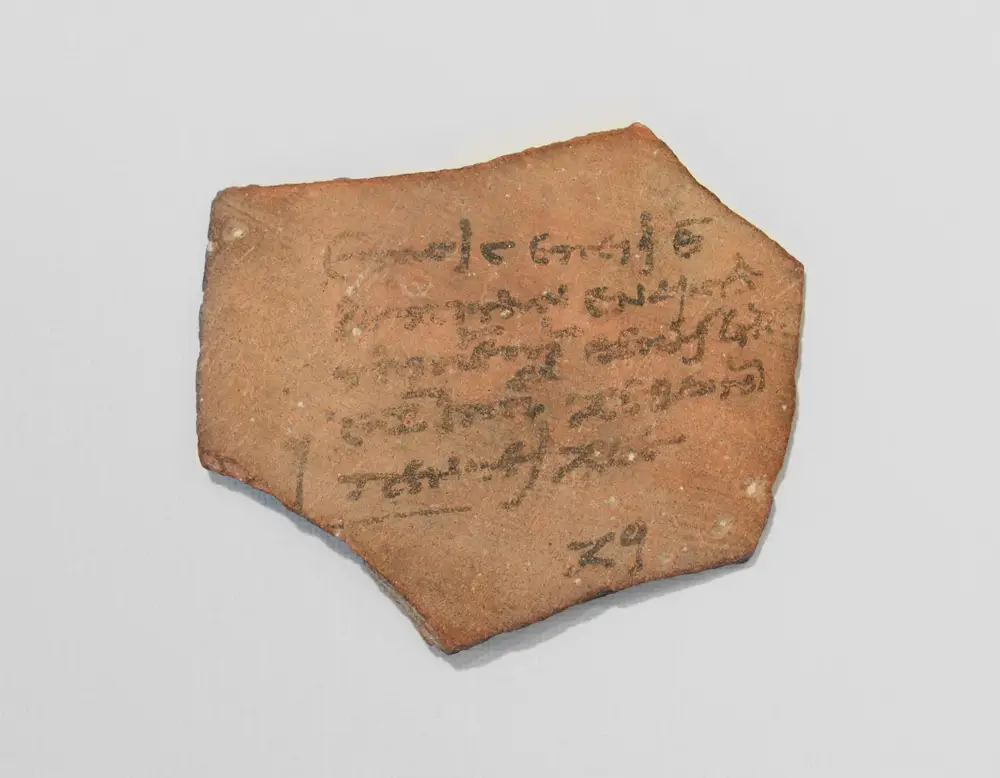Ancient History
This Ancient Egyptian Tax Receipt Reveals Something Interesting

You may be not satisfied with the amount of taxes you have to pay each year; however, a recent finding shows that the ancient Egyptians were far less lucky than you. An ancient tax receipt that was recently translated reveals that it took more than 100 kilograms (220 lbs) of coins to pay duty in the ancient Egypt.
“It’s an incredibly large sum of money,” noted Brice Jones of Concordia University in Montreal, responsible for the translation of the text. “These Egyptians were most likely very wealthy.”
The receipt was written in ancient Greek on a piece of pottery and has an exact date of payment on it – July 22, 98 B.C. According to the inscription, the Egyptian taxpayers, whose names are, unfortunately, indecipherable, paid a land tax equal to 75 talents, with an extra 15-talent fee which was probably added because the sum was paid in bronze coins, instead of silver. The payment was delivered to a bank in the city of Diospolis Magna, also known as Luxor or Thebes.
A talent was a unit of mass that was widely utilized in antiquity as a commercial weight, as well as an equivalent of money when used for measuring the mass of precious metals. Its weight varied in different nations and cultures. Thus, an Egyptian talent was approximately 27 kilograms (60 lbs), a Greek talent was around 26 kilograms (57 lbs) and a Roman talent weighed 32.3 kilograms (71 lbs).
It is worth noting that at the moment when the tax receipt was paid, paper money did not exist and there were no coins of a value approximate to one talent. Thus, people had to use drachmas, and really big amounts of coins were needed to pay such sums. According to the estimates, one talent was equal to 6,000 drachma, so 90 talents necessary to settle this ancient tax bill would equal 540,000 drachma.
It is an unthinkable sum, considering the fact that the highest denomination coin of that time was worth only 40 drachma, meaning that the unfortunate taxpayers would have needed 13,500 of them to pay the bill. Moreover, the total weight of these coins would exceed 100 kilograms (220 lbs)!
“The coins in question weigh, on average, 8 grams (0.3 ounces), so the total payment of 90 talents probably had a weight in excess of 100 kilograms (220 lbs),” said Catharine Lorber, an independent expert in Egyptian coins.
The ancient tax receipt sheds new light on this period of Egyptian history. At the moment, it is located at McGill University Library and Archives in Montreal and is going to be further studied. The findings will be published in an upcoming issue of the journal Bulletin of the American Society of Papyrologists.
Featured image: LiveScience, Rare Books and Special Collections, McGill University Library and Archives
Typos, corrections and/or news tips? Email us at Contact@TheMindUnleashed.com
